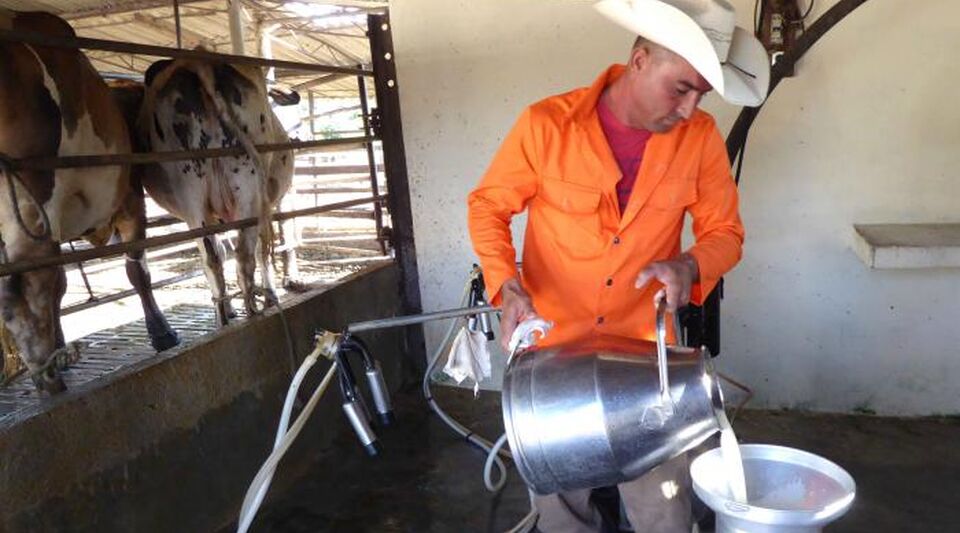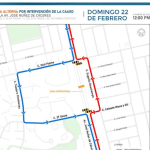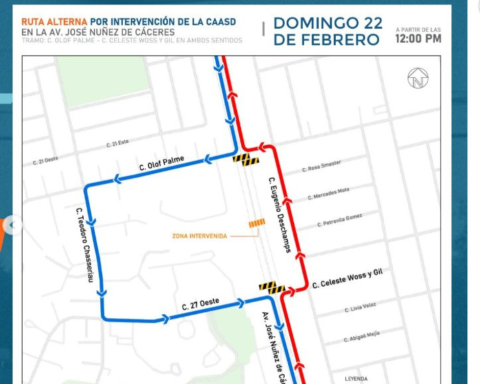The state production of cow’s milk has collapsed between 1989, when it exceeded 900,000 tons, and 2020, the year in which it barely reached the tiny amount of 43,500 tons, 95.27% less in the last 21 years. Faced with this, private production has made a considerable leap, growing by 105.9%. However, the private companies have not been able to compensate for the collapse of the state company and total production has decreased in those years: from 1,120,000 to 455,300 tons, a drop of 59.35%.
The numbers quantify what Cubans see every day: dairy products are hardly found, the ice cream recipe now contains soy and the glass of milk promised by Raúl Castro in 2007 for each citizen is no longer expected. In spite of which, the authorities do not seem to be willing to make forceful decisions.
“The solution to the milk production crisis in Cuba -before the pandemic- will depend on the response of the non-state sector. It produces 10 times more than the state sector”
“The solution to the milk production crisis in Cuba -before the pandemic- will depend on the response of the non-state sector. It produces 10 times more than the state sector. In turn, that response would depend on officially supporting a livestock modern private sector in the country,” requested the Cuban economist Pedro Monreal in a tweet in which he compiled the statistical data of the disaster.
But the authorities bet, as usual, on volunteerism. In a extensive report from Newspaper 26, the official newspaper of Las Tunas, published this Wednesday, the director of the provincial dairy company explains the difficulties in covering the increasingly meager projections. “With this I assure you that we are always immersed in inventiveness, because there is no other option,” argues Vladimir Góngora as if there were no option to change the agricultural and livestock policy to develop production.
The text is headed by the testimony of several desperate people from Las Tunas, because they can’t find soy yogurt for their minor children, nor does bulk milk taste like it should – “It’s water, journalist, I’m not lying.” To add insult to injury, the few dairy products they see are in freely convertible currency (MLC).
“We put ice cream, natural yogurt and cheese in the stores that sell in MLC because the industry has to pay the farmer 15 cents in the same currency for each liter of milk that exceeds and we have to have solvency to stimulate production. This does not want say that at no time do we neglect the supply to the gastronomy networks,” argues Osmani Atencio Legrá, the company’s production technical director in the province.
The report indicates that milk for medical diets was suspended both in the main municipality and in Puerto Padre because only 16,000 of the 26,000 liters needed to cover the demand for the basket and the “prioritized institutions” were reached.
According to officials with whom he spoke newspaper 26, the situation is improving and in spring “the same” can be achieved as was obtained in the previous calendar, “a wide variety of products from those derived from cheese production that will be in the gastronomy networks”, according to the director , somewhat unpromising considering the figures of recent years.
The official attributes the terrible data to the poor feeding of the cows, but also to problems with imports, which affect dairy products
The official attributes the terrible data to the poor feeding of the cows, but also to the problems with imports, which affect dairy products: there is no melting salt for the cheese, nor polyethylene to pack, which affects the quality of the milk.
There is also no sugar, throughout the Island, with which Las Tunas has reduced the amount added to soy yogurt from 8% to 4%, a very healthy decision that the Government does not take for nutritional reasons, but because of scarcity. This product is guaranteed in the province, as in three others in Cuba, but only because there are no beans.
Soy is also being used, as is already known in other corners of the Island, in the manufacture of ice cream. According to Atencio Legrá, with the paste from this seed it is possible to maintain the plan of mixing 2,000 liters per day with which to make 500 gallons of ice cream and, although consumers are not very happy With the result, they should get used to it because there are no plans for change: “We want there to be enough in the province in the summer,” he emphasized.
The official related other dramas, such as the plants that do not work due to lack of gas or overexploitation, but affirmed that alternative productions are invented due to the lack of milk.
The only measure that the Government has taken to liberalize this sector is to allow sell the surplus after complying with the Statebut once again the patch doesn’t seem to work – not counting the defaults– and the alternative of opening the market to private companies is not contemplated. Quite the contrary, those who tried to create alternatives have been penalized. This was the case of Raúl Abreu Gómez, a rancher from Artemisa known as the king of cheese who was imprisoned in 2020 for illicit economic activity. The producer, who supplied several private premises, was accused of delivering 70 liters of milk to the State each day out of the 150 that he was supposed to provide, but a year later he was free and with its cheese factory back in full swing.
According to a report published last week by the Spanish Institute for Foreign Trade (ICEX), in 2020 Cuba had to import whole powdered milk worth 85,000,000 euros and skimmed milk for about 25,000,000.
Meanwhile, the Government must invest in million-dollar purchases of powdered milk. According to a report published last week by the Spanish Institute of Foreign Trade (ICEX), in 2020 Cuba had to import whole milk powder worth 85,000,000 euros and skimmed milk for about 25,000,000 (about 120 million dollars in total), mainly from New Zealand and Uruguay, but also from Belgium, Germany, France and the Netherlands. In previous years and on four occasions, Cuba bought also powdered milk to the United States.
The report explains that a large part of the product goes to the rationed market, but another part goes to stores in pesos or foreign currency. “Normally, powdered milk is imported in bulk and is packaged in 500g and 1 kilogram containers under Cuban trademarks, or without a known brand, coming out in stores in these formats. These establishments are controlled by state-owned companies, and apply commercial margins ranging between 180 and 240% of cost prices”, he adds.
The Icex considers powdered milk a business opportunity because, although in general “state importers offer inflexible payment conditions, with payment terms generally set at 360 days after receipt of the merchandise, (…) milk powder is a good prioritized by the (Cuban) State, so it is likely that the commercial conditions for the import of this product are more favorable for foreign suppliers.”
________________________
Collaborate with our work:
The team of 14ymedio is committed to doing serious journalism that reflects the reality of deep Cuba. Thank you for joining us on this long road. We invite you to continue supporting us, but this time becoming a member of our newspaper. Together we can continue transforming journalism in Cuba.


















